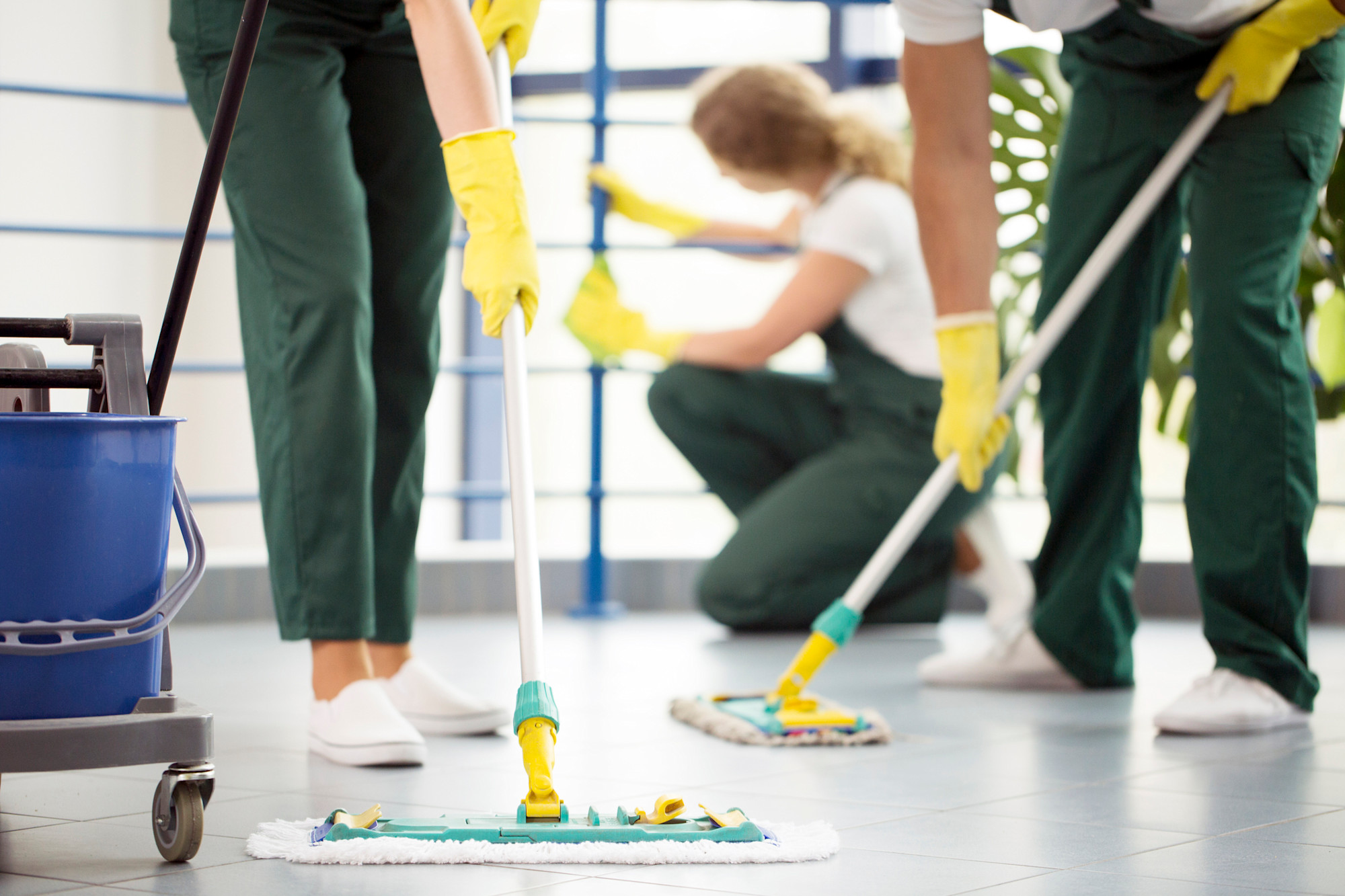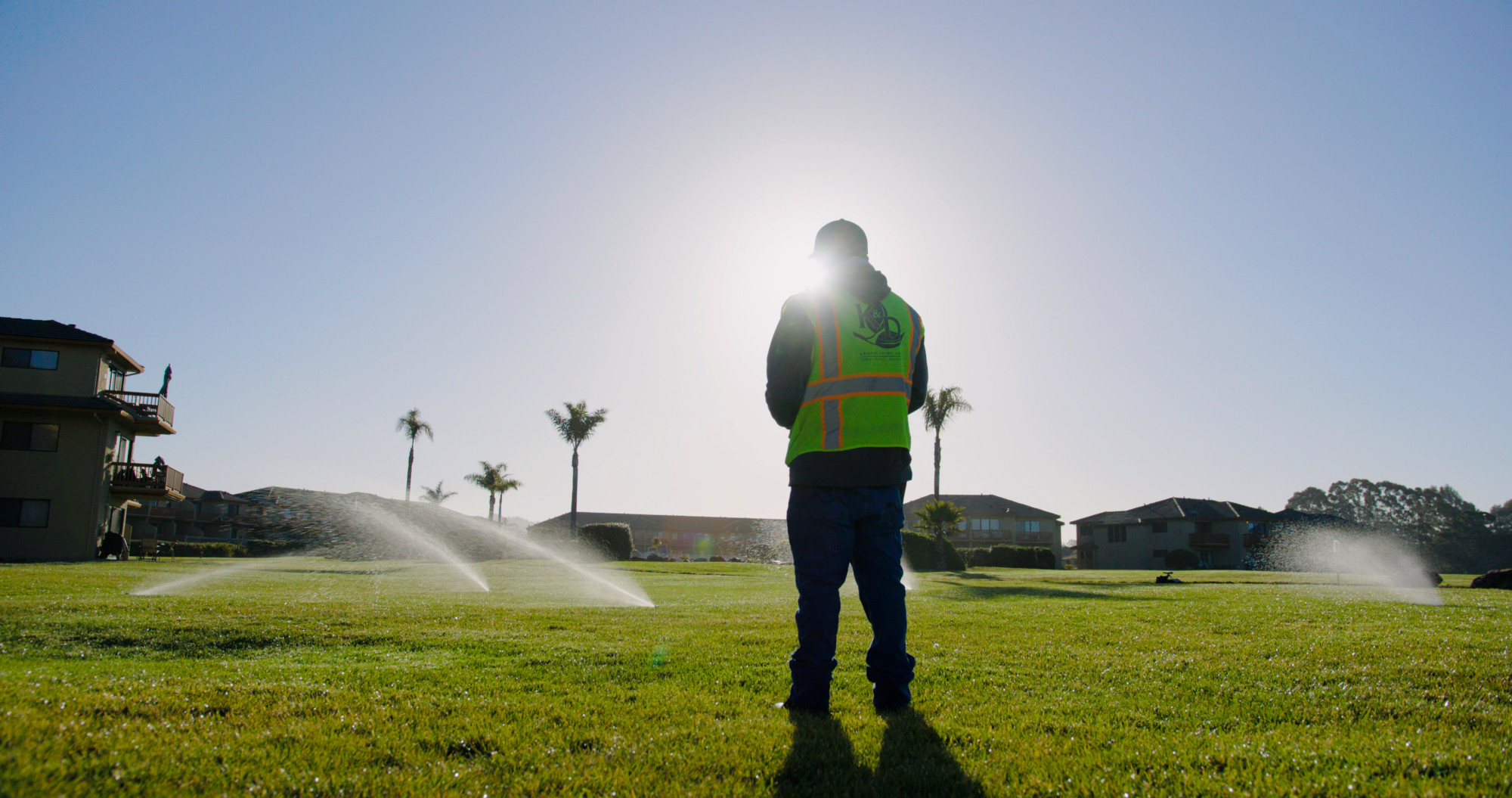Cleaning business grants are financial assistance provided by government bodies, private organizations, or non-profits to support the growth and development of small businesses, including those in the cleaning industry.
These grants are typically non-repayable, making them an attractive funding option for business owners looking to expand without additional debt.
When should you consider applying for a business grant?
Cleaning contractors use business grants when they need funding to:
Purchase new equipment
Hire additional staff, or
Expand their services
Unlike loans, grants don’t require repayment, which helps maintain positive cash flow while covering essential business needs such as cleaning supplies or marketing initiatives.
What are the different types of small business grants?
There are three types of small business grants for cleaning service businesses: federal, state and local, and industry-specific.
Federal grants (like SBA grants) are often used for economic development and innovation. State and local grants support community-focused projects and industry-specific grants promote sustainability or green cleaning.
Cleaning contractors can apply for a small business grant by:
Research the grant programs that fit their business goals and needs.
Create a detailed business plan on how the funds will be used for their cleaning business.
Apply with all required documents, including financials, business history, and any needed certifications.
Follow up with the grant provider to track the application and any additional requests.
Now that you know the basics of the main cleaning business grants, let’s understand the types and how to find them for your company.
What are cleaning business grants?
Cleaning business grants are non-repayable cash awards given to cleaning companies to help them grow and operate. These grants come from government agencies, non-profits, or private organizations. They provide essential funding to help small businesses (such as cleaning companies) cover equipment purchases, training, or marketing expenses.
Grants are a great alternative to business loans because they don’t require repayment, so companies can maintain their cash flow and invest in newer, necessary resources. With these grants, cleaning businesses can add services, hire more employees, or enhance operations without taking on more debt.
How do small business grants work?
Small business grants follow a process that business owners must go through to get funded.
Eligibility: Each program has specific requirements, such as the type of business, location, and industry focus.
Application: If a business is eligible for a grant, they can apply, which often includes a business plan, financials, and a clear explanation of how the grant funds will be used.
Approval: Once submitted, the grant applications are reviewed by the issuing body. This phase may include interviews or additional documentation, such as a financial institution.
Grant disbursement: Successful applicants receive the grant money, which can be used according to the grant agreement.
How can a cleaning contractor apply for a small business grant?
1. Check your qualifications
Before you apply for a grant, confirm that your cleaning business meets the eligibility criteria. Grant providers often have specific requirements based on:
Business type
Location
Industry
For example, some grants are for women's or minority-owned businesses, and others are for eco-friendly cleaning services.
You can review the grant’s eligibility criteria on platforms like Grants.gov, which outlines what applicants need to qualify for different government grants. Non-governmental entities like non-profits or local initiatives have different qualification standards. Check each organization’s rules.
Some of the most common qualification factors are:
Business structure (LLC, sole proprietorship, etc.)
Business size (based on revenue or employees)
Location or region
Industry focus (e.g., cleaning services)
Knowing these criteria will save you time from applying for grants your business doesn’t qualify for.
2. Research suitable grants for your cleaning business
Now that you know your business qualifies for grants, the next step is to research the right funding opportunities. There are many resources to help business owners find grants:
Grants.gov is a hub for federal grant programs.
State and local government websites that have grant programs for small businesses.
Non-profit organizations sometimes offer grants to businesses that align with their mission, especially those that focus on sustainability or community development.
Private institutions and corporations like FedEx or Visa offer small business grants to encourage growth and innovation.
In addition to grants, business owners should also contact credit unions, which often offer small business loans with better terms.
When researching, pay attention to:
Application deadlines
Required documents, and
Funding amounts
You can also sign up for alerts from grant databases to stay informed about new opportunities.
Do your research. You may even find grants that fit your niche in the cleaning industry, like eco-friendly business grants.
3. Prepare your business information
Collect the necessary financial and operational information about your business. Most grant applications require detailed business documentation to evaluate your financial stability and the grant's impact on your operations.
Also, showing your financial resources can strengthen your application by showing your commitment to the business.
You will need to include:
A business plan outlining your goals, services offered, business ideas, and how the grant will support your business growth—if you don’t have a business plan, refer to templates like those available in Aspire’s business plan guide
Financial statements such as balance sheets, income statements, and cash flow statements that demonstrate your company’s financial health
At least two years of tax returns, especially if the grant provider requires them to be eligible
Business licenses and permits to show you operate legally
This information will make your grant application process smoother and ensure you meet all deadlines.
4. Demonstrate how the grant will help your business
Grant providers want to see how their funds will directly impact your cleaning business. You must clearly show how the grant fits your business needs and how you will utilize the funds. Typical fund distribution might include:
Buying new cleaning equipment
Expanding your staff
Offering additional cleaning services (e.g., eco-friendly or specialty cleaning)
Offering specialized services like deep cleaning
Marketing and client outreach efforts
Your business plan should show how this funding will grow your business and contribute to long-term success. Be specific in your explanations and include projections or case studies if possible. Detailed examples will strengthen your case and show grant providers the strategic allocation of funds.
5. Submit your application
Once you have all the necessary documents, it’s time to apply. Depending on the grant provider, the application process may vary. For federal grants, you can apply directly through Grants.gov. For state or local grants, check the relevant government websites.
When applying, keep in mind:
Double-checking all requirements
Customizing each application to the specific grant
Following up to make sure your application is being processed
A complete and accurate application will increase your chances of getting a small business grant.
Now that everything is in place, you can get the proper grant to help your cleaning business. Next, we’ll explore the different types of grant opportunities.
What are the funding alternatives to grants for cleaning businesses?
1. Small business loans
Small business loans, especially SBA loans, are a popular option. Small Business Administration-backed loan programs, like SBA 7(a) loans, offer flexible terms and lower interest rates and can cover substantial expenses like buying equipment or hiring staff. Cleaning companies use these loans to expand their services.
2. Business lines of credit
A business line of credit allows cleaning companies to borrow up to a specific limit and only repay what they use. This is good for managing cash flow or buying supplies during busy seasons. The flexibility and fast access to funds make it a great financing tool for cleaning businesses.
3. Personal loans from family & friends
For cleaning startups, entrepreneurs, or small business owners, personal loans from family or friends can be an option. These informal loans give quick access to funds but must have clear repayment terms to avoid damaging personal relationships. Personal loans may be a viable alternative when traditional financing isn’t available.
4. Business credit cards
Business credit cards are ideal for covering small expenses like buying cleaning supplies, marketing materials, or fuel for transportation. These cards help build a business credit history and offer revolving credit. But pay off balances to avoid high interest fees and keep your credit score positive.
5. Angel investors
Angel investors fund early-stage cleaning businesses in exchange for equity. These investors often provide funding and mentorship, which helps companies grow fast. However, cleaning business owners must be willing to give up some of their ownership.
6. Crowdfunding
Crowdfunding platforms like Kickstarter or Indiegogo offer cleaning businesses the opportunity to obtain business funding funds from small investors or supporters. It’s a great way to test new ideas or service offerings while raising money without giving up equity.
7. Peer-to-peer lending
Peer-to-peer (P2P) lending platforms connect small businesses with individual investors who want to lend money as money working capital. This alternative often has more flexible terms than traditional banks and can be a faster way to get funding for immediate needs.
Cleaning businesses looking for quick access to capital can explore P2P platforms as a more streamlined option with less demanding eligibility criteria.
8. Equipment financing
Cleaning businesses need specialized equipment. Equipment financing is a loan that allows companies to borrow money to buy new equipment. The equipment is collateral, and payments are spread out over time, so it’s easier for cleaning businesses to invest without high upfront costs.
Commercial cleaning businesses often need specialized equipment to meet client needs, which is where equipment financing comes in.
These funding alternatives offer flexibility, fast access to capital, and potential long-term growth. Be sure to choose the right financial solution for your business.
The bottom line
Grants and alternative funding options can help cleaning businesses grow and thrive. While grants are free, alternatives like bank loans and peer-to-peer lending financing options offer flexibility.
Cleaning business owners should explore all the options to suit their needs. With Aspire's reporting features, contractors and business owners can gain insights into their operations and performance.
Book a free demo with Aspire to learn how Aspire can support your business goals.
Disclaimer: This article is for general information only and not financial or legal advice. Always consult a financial professional when making decisions about your business funding.
Frequently Asked Questions (FAQs)
What are the pros and cons of small business grants for cleaning businesses?
Pros Grants are risk-free capital as they don’t require repayment. Once approved, you control your business entirely without giving up equity to investors. And if you get a grant once, it often increases your chances of getting future grants as you’ve proven your credibility.
Cons: The grant application process can be lengthy and competitive, with strict eligibility requirements. Grants have spending rules, so you can’t use the funds however you want. Grants are not a long-term source of capital and are not renewable.
How do small business grants differ from loans?
Small business grants differ from loans because they don’t need to be repaid, while loans must be repaid with interest. Grants are awarded based on eligibility and purpose, while loans are based on creditworthiness and repayment ability.
Are small business grants taxable?
Yes, small business grants are generally considered taxable income at the federal and state levels unless otherwise specified by law—factor in these taxes when applying for and using grant funds.
How do you qualify for a small business grant?
To qualify for a small business grant, you must meet the criteria set by the grant provider. Criteria often include location, size, revenue, and aligning your business goals with the grant purpose. Some grants may also require a partnership with a non-profit. Review the eligibility criteria before applying to make sure you meet the requirements.







